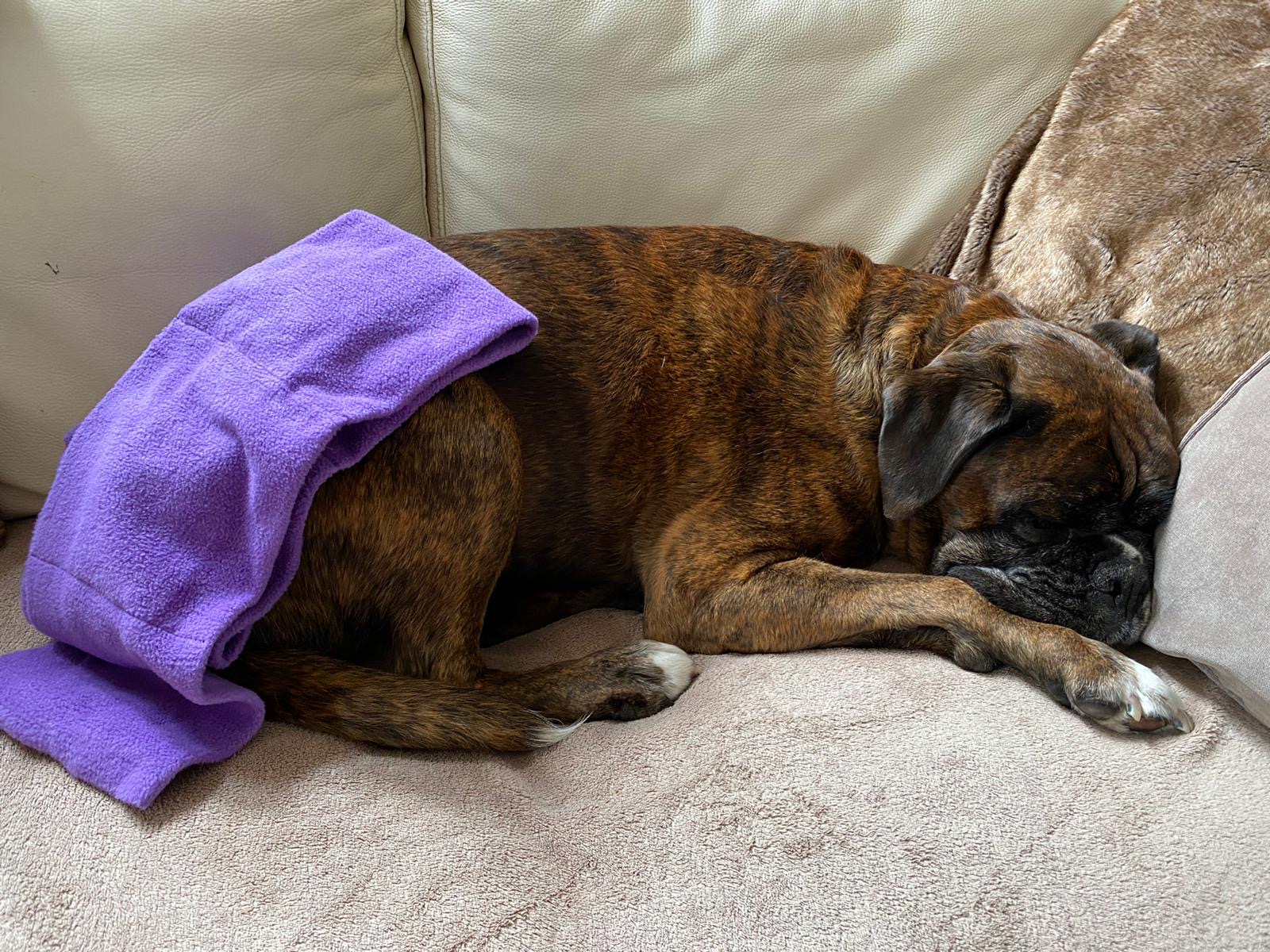Pain in dogs
Do you know the signs of pain in your dog?
During these unusual times when we all find ourselves with a lot more time on our hands, that also includes both Vikki and I, we have been doing lots of reading of articles and text books and listening to many useful podcasts and watching lots of webinars, all focusing on the many different elements of Hydrotherapy and conditions that we find ourselves dealing with on a daily basis. Personally I have been focusing on PAIN, both the causes and the effects it can have on a dog.
Pain
Sometimes its hard to know whether a dog is in pain or not and some dogs hide it very well.
Without someone like a vet actually pointing it out to us, it can go unnoticed and a dog can simply suffer in silence.
I have put together a simple list of things that people can look for, to show signs that maybe of concern to them and require a veterinary visit:
1. CONSTANT GROOMING: is your dog licking excessively and persistently, especially if its in a localised area, they can lick where it hurts even if its internal.
2. BEING MORE VOCAL: Is your dog making more noise than usual? Look for an increase in whining, growling, barking or other vocalisation
3. LOSS OF APPETITE: Is your dog disinterested in food? Could they be in pain and find eating difficult or maybe getting to their bowl painful?
4. AGGRESSION: If your dog is usually docile and friendly but suddenly becomes aggressive, there is a good chance they are in pain.
5. PANTING: Is your dog panting excessively but hasn’t been exercising? It could be a sign of stress, and the underlying cause of stress? PAIN.
6. DIFFICULTY MOVING: Look out for signs your dog is having difficulty with mobility, a reluctance to climb stairs, jump in and out the car, or simply run around in the garden? These can be signs of an underlying injury or condition.
7: CHANGES IN SLEEP PATTERN: Some dogs will sleep more in an attempt to heal the pain, but some dogs will not be able to sleep if the pain is too intense.
8. ACCIDENTS IN THE HOUSE: Dogs in pain can have difficulties in moving around, laying down or getting out of bed, this can result in accidents in the house. Is your well trained dog starting to urinate or defecate in the house? Make sure to rule out pain as the underlying cause.
Always be sure to inspect your dog’s body for painful areas as gently as possible to avoid causing further harm.
Hope you find this useful, or something to refer back to for future reference.
Take Care and see you soon

